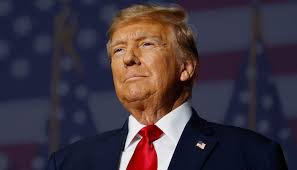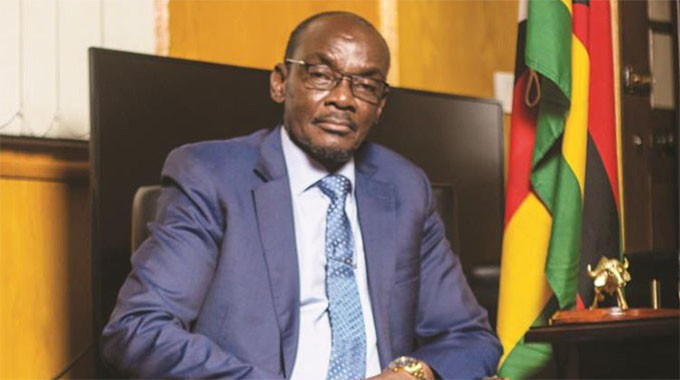
ZIMBABWE at the turn of the century lived true to the meaning of global village.
Its citizens were migrating all over the world, setting up bases and immersing themselves in cosmopolitan capitals.
However, this is about to end following the United States (US) visa “pause” for Zimbabweans.
Many Africans had embraced the concept of a global village — the world as just one big country, interconnected and the shrinking of space and time.
The world is connected by airlines, global languages like English and French and more open borders.
Many countries in the West had simple and cheaper visa regimes for Africans.
Educated Africans used the relaxed visa regime to migrate to Europe or North America.
They were going in droves, running away from collapsing economies, civil wars and dictatorships on the continent.
- Zim needs committed leaders to escape political, economic quicksands
- NACZ contributing to arts teaching in schools
- MIHR petitions govt on Lubimbi relocations
- Rising boxer Danzwa braces for biggest fight in her career
Keep Reading
Zimbabwe was no exception.
The fast-track land reforms, deteriorating political situation and economic implosion drove thousands to migrate, mostly to the United Kingdom.
The United Kingdom (UK) responded to the influx of Zimbabwean migrants by introducing a visa regime.
Prior to 2003, Zimbabweans did not need to apply for a visa in advance to enter the UK.
US president, Donald Trump, in pursuit of his agenda to “make America great again” (MAGA) has closed the taps on migrants from South America and Africa.
He has established new ways of processing migrants and refugees.
The US changed its visa policy for countries that had most of its citizens overstaying or just going underground once they were in the US.
Malawi and Zambia were hit with a US$15 000 visa bond.
This means Malawians and Zambians have to pay a deposit of US$15 000 for their visas to be processed.
This is an arm and a leg for most of these people.
Zimbabwe was also caught in the crosshairs.
The US embassy announced that there was a pause in processing visas for Zimbabweans until further notice.
In simple terms, the US is now a no-go zone for Zimbabweans.
The US embassy posted on X (formerly Twitter): “Pause on visa services in Zimbabwe. We have paused routine visa services in Harare while we address concerns with the government of Zimbabwe. This is not a travel ban. All valid visas remain valid. We will provide updates on resuming visa services as soon as there is a change.”
It is interesting that the concept of a global village is fast changing.
Most African countries do not require visas for European and US citizens to enter their countries, but their citizens do not enjoy the same if they have to travel to Europe or the US.
This has also to be read in the context of the migration debates.
Most developed countries are closing their borders to poor people from the developing world.
Developed countries have changed how they process asylum and economic refugees.
In fact, they are making it difficult for blacks and Latin Americans to migrate.
Zimbabwe responded to the visa processing pause.
It said it was pursuing diplomatic channels to resolve the issues.
However, the reality is: Zimbabwe will patiently wait for the US to dictate its terms.
Over the last two decades, Zimbabwe has struggled to have US economic sanctions lifted.
Power relations in the global village have never been even.
Some countries are big brothers.
This is also noticed at the United Nations, where the big five have permanent seats on the security council and enjoy veto power.
The odds are always stacked against the poor nations.
Probably, the US visa pause in the case of Zimbabwe or visa bond in the case of Malawi and Zambia will jolt African countries to rethink how they can live in the global village.
The starting point would be having local politics that benefit the citizens.
Governments that are able to provide basic public services to their citizens.
These services among others include: public health, public education, public transport, energy and water.
Providing the above-mentioned services will to greater extent dampen the temptation to migrate to Europe or the US.
The citizens would be willing to work decent jobs and develop their nations.
It is interesting to note that Zimbabwe is potentially a rich country based on its natural resources and resilient human resources.
However, poor politics, corruption, cronyism and bad leadership have caused many of its brilliant citizens to migrate.
This has to change and the change should begin now.
The US visa pause — ban — is worrying.
The US is giving pointers to other countries, especially Western Europe to stem migration from Africa and Latin America.
Getting visas will become more difficult and expensive for people from poor countries.
The concept of the global village has cracked and we now know who is the headman or chief.
It is a fantasy to think that all villagers in the global community are equal or carry the same weight.
The value and position of each country is based on two things; economic and military muscle.
For now, Zimbabwe has to lick its wounds, be brave and work on building its economy.
The global village mirage should be seen for what it is. However, this needs good leadership and politics that serve its citizens as earlier argued.
For the first time in 25 years, Zimbabweans have their options of migrating shrinking.
The recent US visa pause further points to how isolated the country is becoming.
Zimbabwe needs to rethink and reimagine what a global village is and how it can participate in it.
- Paidamoyo Muzulu is a journalist based in Harare. He writes here in his personal capacity.










